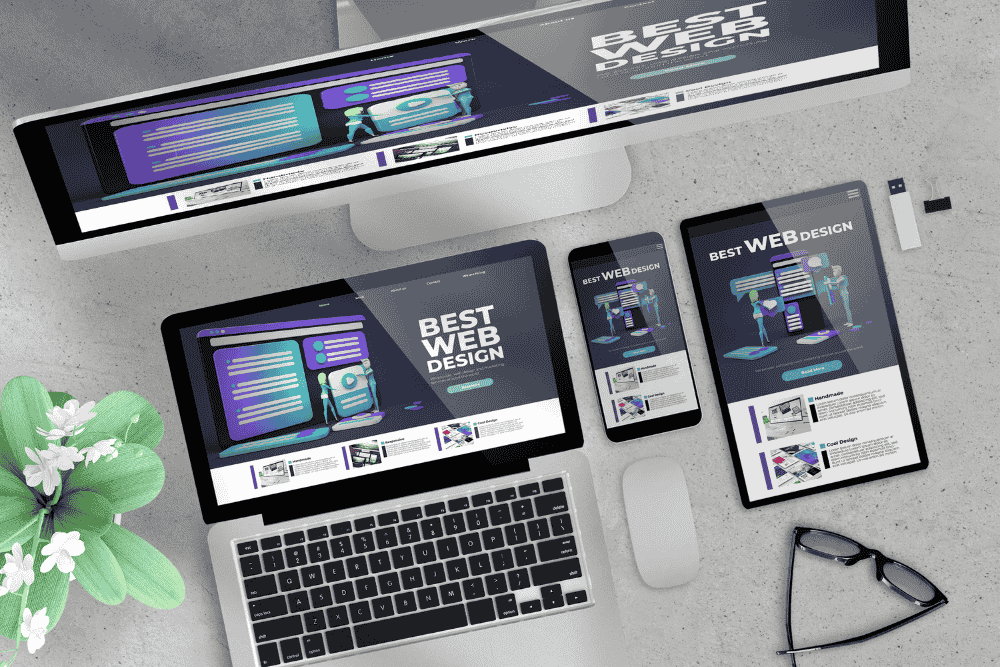Choosing a Web Design Consultant: Key Tips
Choosing a web design consultant is a crucial step for any business aiming to establish a strong online presence. In 2025, your website isn’t just a digital brochure—it’s the engine that drives your leads, sales, and brand image. A well-designed website can elevate your business by enhancing user experience, increasing conversions, and making a lasting impression. This guide will walk you through the key tips for choosing a web design consultant who understands your goals and delivers results.
Why Choosing a Web Design Consultant Matters
Your website represents your business 24/7, and it is often the first point of contact between you and your potential customers. A great consultant ensures that your website is:
- Aligned with your brand identity: It reflects your business values and resonates with your target audience.
- Optimized for conversions: With clear calls to action, effective layouts, and functional design, your website should convert visitors into leads or customers.
- Built for SEO and speed: A fast-loading website with SEO-optimized content helps your business rank well on search engines.
- Mobile-friendly and accessible: With increasing mobile traffic, a mobile-responsive and accessible website is no longer optional—it’s essential.
On the flip side, a poor consultant can waste your time, drain your budget, and hurt your reputation by creating a website that doesn’t meet your business needs or fail to optimize for performance.
Key Qualities to Look For
When choosing a web design consultant, prioritize the following qualities to ensure you’re working with a professional who can meet your needs:
1. Proven Portfolio
A consultant’s portfolio is the best way to gauge their ability. Always ask for examples of past work, and look for:
- A variety of industries or business types
- Creativity in design, ensuring it stands out
- Mobile responsiveness and clean design across devices
A diverse portfolio shows adaptability and a breadth of expertise.
2. Business Understanding
A great consultant doesn’t just design websites—they understand your business. They should ask insightful questions about your:
- Target audience: Who are your customers and what do they value?
- Business goals: Are you looking to increase sales, generate leads, or raise brand awareness?
- Industry trends: What’s important in your specific market?
This helps them design a website that not only looks good but also works for your business objectives.
3. SEO and UX Knowledge
Websites must rank well on search engines and offer an excellent user experience. A good consultant should be familiar with:
- SEO best practices: On-page SEO, keyword optimization, and clean code to improve rankings.
- Page speed optimization: Reducing load times to improve user experience and SEO.
- Clean UX/UI design principles: Designing intuitive navigation and layouts that engage users.
4. Communication Skills
Effective communication is essential throughout the design process. Look for someone who:
- Explains their design process clearly
- Keeps you updated and involved
- Sets realistic expectations for project timelines and deliverables
Poor communication can lead to misunderstandings and missed deadlines.
5. Post-Launch Support
A true partner doesn’t disappear after the website is live. Post-launch support is vital to maintaining the website’s functionality. Ensure they offer:
- Maintenance services: Ongoing updates, security patches, and bug fixes.
- Training: Empowering you to manage your site effectively.
Red Flags to Avoid
Not every consultant is professional. Be cautious if you encounter:
- No portfolio or vague case studies: If they can’t provide examples of their work, it’s a warning sign.
- Overpromising with unrealistic timelines: Quality takes time. Be wary of anyone promising quick fixes or rushed work.
- Poor communication or missed deadlines: Delays and miscommunication can lead to a disappointing final product.
- No contract or unclear pricing: Always ensure that the project scope, timeline, and payment terms are clearly outlined.
- Lack of knowledge on responsive design: A good consultant should understand that mobile-first is crucial today.
Questions to Ask Before Hiring
Asking the right questions will help you filter out the amateurs from the experts:
- What’s your process for web design projects? This ensures they have a structured approach to meet your needs.
- How do you handle SEO and mobile optimization? Ask for specific examples of how they integrate these aspects into their designs.
- Can I see 3 recent client examples? Recent work reflects the consultant’s current skills and style.
- Do you use templates or create custom designs? Custom designs are tailored to your business, while templates can be limiting.
- What’s your timeline and revision policy? Understand how long the project will take and how revisions will be handled.
- Will I own my website and content? Ensure that all rights to the content and website are transferred to you upon completion.
Real-World Scenarios and Examples
Consider a fitness center that needs a fast-loading, mobile-friendly site for booking classes. Hiring a consultant who only builds portfolio websites for artists may not be ideal. They need someone who understands the functionality, user engagement, and mobile optimization critical to the fitness industry.
By focusing on functionality, accessibility, and user-centered design, they can create a website that boosts bookings and delivers results.
For additional insights, check out articles like Mobile-Friendly Website Tips for Small Businesses in 2025 and UX/UI Design Basics Every Developer Should Know.
Conclusion
Choosing a web design consultant isn’t just about finding the cheapest option—it’s about finding the right partner. You need someone who brings strategy, creativity, and business smarts to the table, ensuring your website is an asset to your business.
FAQs about Choosing a Web Design Consultant
1. How do I know if a web design consultant is right for me?
A good web design consultant will understand your business goals, target audience, and will create a website that is both visually appealing and optimized for conversions. They should also offer ongoing support after launch.
2. How important is SEO knowledge for a web design consultant?
SEO is essential for ensuring your website ranks well on search engines. A good consultant should implement SEO best practices such as optimizing images, improving page speed, and structuring your website properly for search engines.
3. Should I choose a consultant who offers post-launch support?
Yes, it’s important to choose a consultant who offers post-launch support. This ensures your website remains functional, secure, and up-to-date with any necessary updates or maintenance.
4. How do I assess the consultant’s portfolio?
Review the consultant’s portfolio to assess the quality and style of their work. Ensure they have experience in your industry or business type, and look for creative, user-friendly designs that are mobile responsive.
5. How can I ensure good communication throughout the process?
Before hiring, ask about their communication methods and frequency. A professional consultant should set clear expectations and keep you informed about the project’s progress.
We Build Websites That Work While You Sleep — Let’s Launch Yours.
👉 Ready to Scale Your Business? Book Your FREE Consultation and Discover How to Attract More Clients with a High-Converting Website Built to Engage and Convert Your Ideal Customers.






